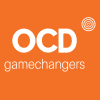There’s a part of my brain that I call anxious mind. Anxious mind wants me to check the stove one more time, just to be certain: The house could burn down and you’d be responsible. Anxious mind wants me to avoid driving: People actually die – and kill others – in auto accidents every day. Why risk it? Anxious mind is what led to my diagnosis of OCD and generalized anxiety disorder.
But anxious mind isn’t the only resident of my brain. There’s also laid-back mind, which believes that you have to be willing to take risks to live fully. Laid-back mind encourages me to consider other values, do exposure, build up my risk tolerance, and not think about safety in black-and-white terms: Don’t check the stove. Drive more. Take the risk. Live in the gray. (area?)
Normally, I try to listen to laid-back mind. So, it was jarring when, in March, the messaging around me started sounding like the black-and-white thinking of anxious mind: Stay home! Don’t be like those irresponsible people who are going to the store or park. They’re putting themselves and others at risk and need to be shamed into changing their behavior. No, you can’t even see one friend. In fact, the answer to all your social distancing questions is no.
Laid-back mind protested: Okay, throwing a huge party probably isn’t a great idea. But is seeing one friend or getting takeout really out of line with risks like driving? Aren’t these examples of small, value-driven risks to support local businesses and mental health during a difficult time?
Confused, I sought out resources on managing OCD during the pandemic. The general message seemed to be that anxiety disorders are irrational, alerting sufferers to danger when no danger is present. The pandemic, however, involves real danger – which justifies extreme caution.
But laid-back mind wasn’t convinced: Driving involves real danger too. Yes, COVID is a bigger threat – but the principle of taking calculated risks for other values hasn’t changed.
During calmer moments that made sense. So, under lockdown, I took small risks. I got takeout. I had my housecleaners come. And anxious mind tormented me for it: This is reckless. Everyone agrees – see how they’re shaming people like you? You’re going to die of COVID and kill others in the process.
I felt trapped and desperate, which brought out my “fight” response: angry mind. Angry mind fumed bitterly: So, society’s collective fear suddenly makes it okay to engage in black-and-white thinking and go to extremes to eliminate one particular kind of risk? And to view that behavior as a badge of honor? And to call others reckless for being less hardcore about it?
In late May, the murder of George Floyd sparked protests for racial justice. And laid-back mind breathed a sigh of relief as crowds formed in the streets – crowds that were met with support and approval, instead of the fear and judgment that had just recently been directed at crowds on beaches. It felt like society was finally letting go of its absolute stance and beginning to sanction taking calculated risks for other values. That shift weakened anxious mind’s attacks. But angry mind surfaced to vent: Where was this balanced message when I was feeling like a murderer for getting takeout?
As reopening progressed and policy shifted from “abstinence only” to harm reduction (a much healthier approach for an anxiety sufferer), laid-back mind found strength. I got my nails done, went to restaurants, and even flew across the country to visit family. And I noticed that many others, growing tired of their restricted lives, were venturing out and habituating to the new threat – exposure in action! Watching them gave me a more realistic benchmark than health guidelines: make a reasonable but imperfect effort, as others do, to follow the new rules.
It’s still a challenge. I still hear messages that stigmatize risk taking (even though, by now, most people are quietly taking some risks). Those messages trigger anxiety and shame, followed by anger. But I remain committed to taking calculated risks and accepting the uncertainty that I may get or spread COVID.
This crisis has highlighted for me how social norms determine which fears are considered irrational. If I complained that my employer required me to risk my life driving to work, nobody would take me seriously. Because society has accepted car accident risk as normal, my fear of driving is my problem, not anyone else’s. Now there’s a new, bigger threat – one that society does not (yet) accept as normal. Here’s what I think is happening: Society is in the ugly, contentious, politicized process of renegotiating which risks people are expected to habituate to and accept as part of life. And being in the midst of that ugliness has been brutal.
–Anonymous

